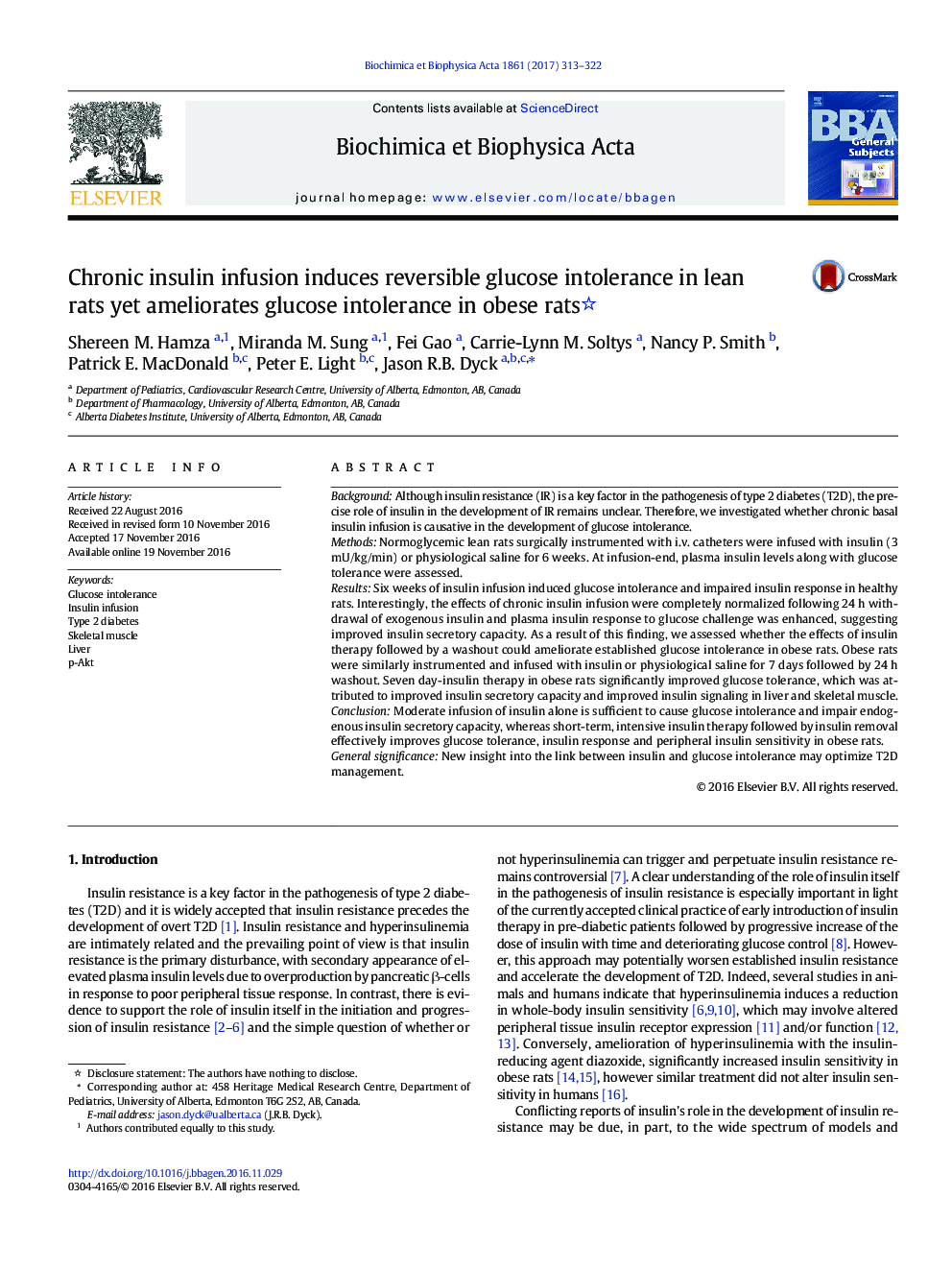| کد مقاله | کد نشریه | سال انتشار | مقاله انگلیسی | نسخه تمام متن |
|---|---|---|---|---|
| 5508261 | 1400367 | 2017 | 10 صفحه PDF | دانلود رایگان |
- Chronic insulin exposure actively contributes to development of glucose intolerance.
- Short-term insulin treatment of obese rats dramatically improves glucose tolerance.
- Endogenous insulin response significantly improved by short-term insulin treatment.
- Increased phosphorylation Akt in liver and skeletal muscle
BackgroundAlthough insulin resistance (IR) is a key factor in the pathogenesis of type 2 diabetes (T2D), the precise role of insulin in the development of IR remains unclear. Therefore, we investigated whether chronic basal insulin infusion is causative in the development of glucose intolerance.MethodsNormoglycemic lean rats surgically instrumented with i.v. catheters were infused with insulin (3Â mU/kg/min) or physiological saline for 6Â weeks. At infusion-end, plasma insulin levels along with glucose tolerance were assessed.ResultsSix weeks of insulin infusion induced glucose intolerance and impaired insulin response in healthy rats. Interestingly, the effects of chronic insulin infusion were completely normalized following 24Â h withdrawal of exogenous insulin and plasma insulin response to glucose challenge was enhanced, suggesting improved insulin secretory capacity. As a result of this finding, we assessed whether the effects of insulin therapy followed by a washout could ameliorate established glucose intolerance in obese rats. Obese rats were similarly instrumented and infused with insulin or physiological saline for 7Â days followed by 24Â h washout. Seven day-insulin therapy in obese rats significantly improved glucose tolerance, which was attributed to improved insulin secretory capacity and improved insulin signaling in liver and skeletal muscle.ConclusionModerate infusion of insulin alone is sufficient to cause glucose intolerance and impair endogenous insulin secretory capacity, whereas short-term, intensive insulin therapy followed by insulin removal effectively improves glucose tolerance, insulin response and peripheral insulin sensitivity in obese rats.General significanceNew insight into the link between insulin and glucose intolerance may optimize T2D management.
Journal: Biochimica et Biophysica Acta (BBA) - General Subjects - Volume 1861, Issue 2, February 2017, Pages 313-322
